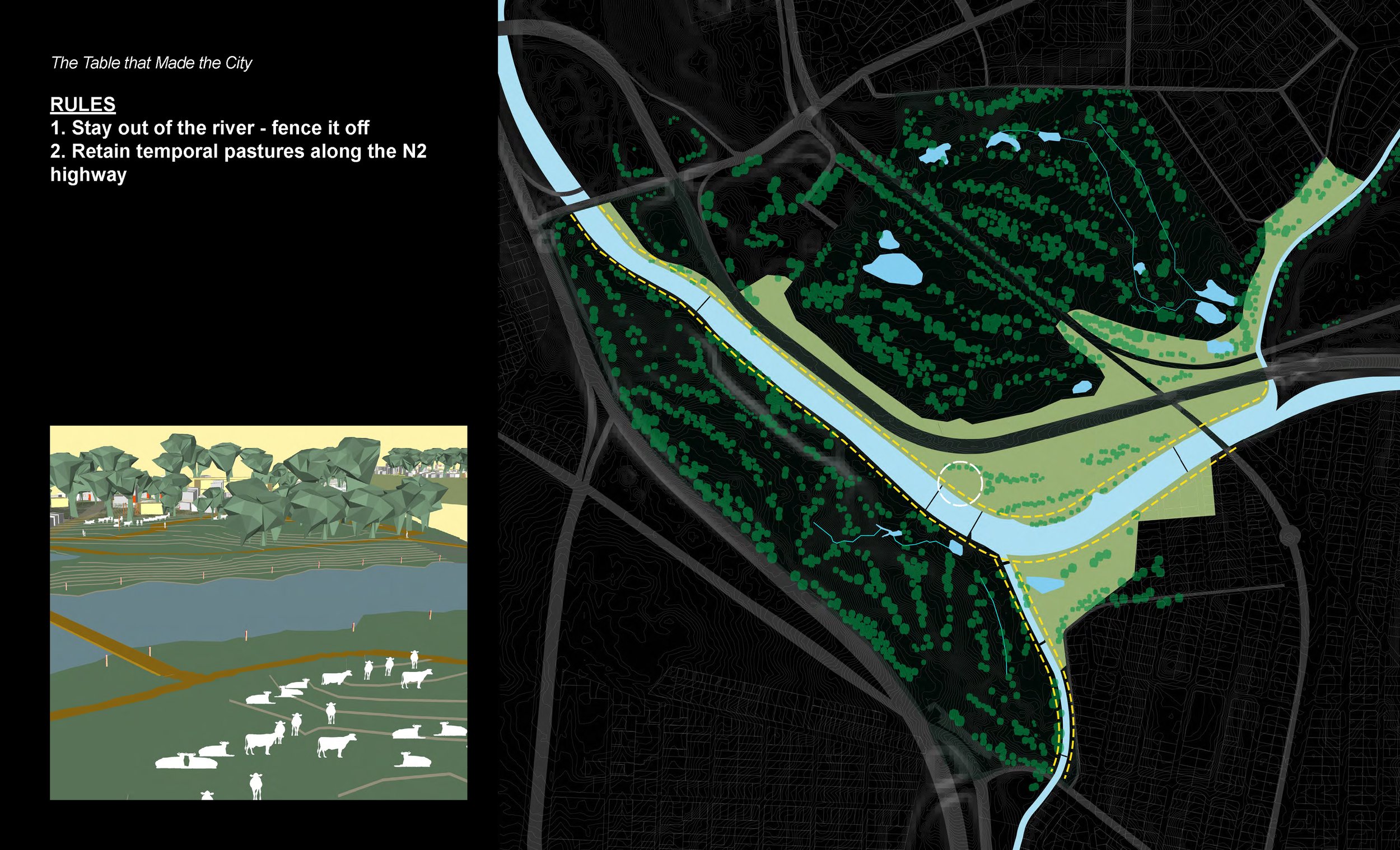The Table that Makes the City
‘The Table that Makes the City’ is an imagined exploration of how fundamental infrastructures can facilitate rapid urbanization and create a future, just city. Spatial justice and land rights have historically been a topic of contestation, especially on public lands with private interest (such as golf courses, and bowling greens) throughout the city of Cape Town, South Africa.
‘The Table that Makes the City’ is an imagined exploration of how fundamental infrastructures can facilitate rapid urbanization and create a future, just city. Spatial justice and land rights have historically been a topic of contestation, especially on public lands with private interest (such as golf courses, and bowling greens) throughout the city of Cape Town, South Africa.
The project sets up a flexible framework for patterns of housing to be built by the people. Imagined is the rapid urbanization of the King David Mowbray and Rondebosch Golf Courses, and its future city potential.
Cape Town is a city where people build for themselves, and the proposal works on the premise that a group of revolutionary forces are eager to devise a radical reclaiming of land, re-imagining what a new city could look like for working and middle-class citizens. Rapid urbanization is often required to realign the city fabric with the needs of its most vulnerable citizens. Those represented by revolutionary forces often reside in substandard conditions on the periphery of the city, in distant proximities to their workplace.
Building new infrastructures upon existing ones, the city is re-imagined. As opposed to an extensive pre-planned masterplan, the city is built by the citizens themselves through a series of rules, delivering housing and infrastructure to fulfill the basic needs of everyday life. The utilized tools of scenario planning, VR and storytelling are used to enhance our understanding, as designers, of the new city’s coming to being.
Included as part of the Venice Biennale 2023 Exhibition
Harvard Graduate School of Design, 2021
Collaborative work with Iris Kim / Advisor: Heinrich Wolff



















